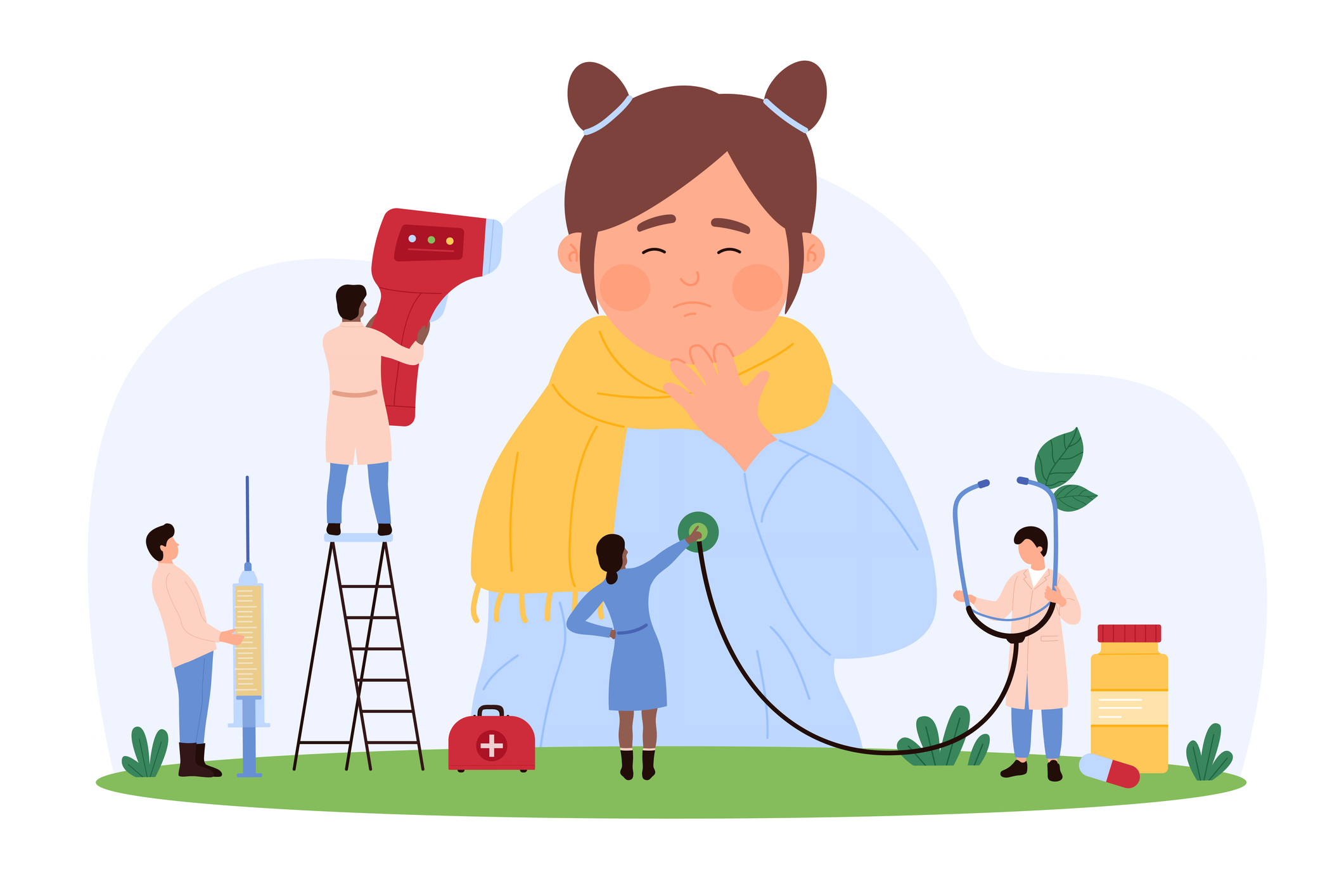What is the Best Antibiotic for Bronchitis?
By Alyse Thompson
June 25, 2025
Prescription Drugs, Your Health & Wellness

What is the Best Antibiotic for Bronchitis?
Bronchitis is an inflammation of the bronchial tubes, the airways in your lungs. It causes a cough that may produce mucus. Bronchitis can be acute, lasting a few weeks, or chronic, lasting months or years. Symptoms can also include a sore throat, mild body aches, fatigue, a mild headache, and shortness of breath. Viral or bacterial infections often cause it. Do you need antibiotics for bronchitis? This is a question that a healthcare provider can help you figure out. Finding the best antibiotic for bronchitis might be crucial in certain cases, especially if you have bacterial bronchitis. However, antibiotics aren't always necessary since most cases are viral. Understanding bronchitis and antibiotics can help you make informed decisions about your treatment.
The best antibiotic for bronchitis
The choice of antibiotic for the best antibiotics used for bronchitis in adults depends on several factors. These factors include the type of bacteria, medical history, and any allergies you may have. Here are the most frequently prescribed antibiotics when bacterial bronchitis requires treatment:
| Antibiotic | Drug Class | Common Dosage (Adults) | WellRx Savings Card |
| Azithromycin | Macrolides | 500mg on day 1, then 250mg daily for 4 days | Link Out |
| Amoxicillin | Aminopenicillins | 500mg three times daily for 5-7 days | Link Out |
| Doxycycline | Tetracyclines | 100mg twice daily for 5-7 days | Link Out |
| Clarithromycin | Macrolides | 500mg twice daily for 7-14 days | Link Out |
| Cefuroxime | Cephalosporins | 250-500mg twice daily for 7-10 days | Link Out |
| Trimethoprim-sulfamethoxazole | Sulfonamides | 160/800mg twice daily for 7-14 days | Link Out |
Each of these medications has its own benefits and potential side effects. Your healthcare provider will consider many different factors when selecting the most appropriate antibiotic, including:
- Your age and overall health
- Previous antibiotic use
- Local patterns of antibiotic resistance
- Cost and availability of medications
- Your ability to tolerate certain medications
- Other medications you're currently taking
Do you need antibiotics to treat bronchitis?
Does bronchitis require antibiotics? The answer isn't always straightforward. Viral infections cause most cases of acute bronchitis. Viral bronchitis doesn't respond to antibiotics. In this case, antibiotics can lead to antibiotic resistance and potential side effects. Your healthcare provider will determine what antibiotic for bronchitis is necessary based on your symptoms, duration of illness, and other factors. Viral bronchitis usually:
- Begins with cold-like symptoms
- Develops more slowly
- It may be accompanied by low-grade fever
- Often resolves within 1-2 weeks without antibiotics
Bacterial bronchitis, while less common, may:
- Develop after a viral infection
- Present with high fever
- Produce thick, colored mucus
- Last longer than typical viral infections
When to take antibiotics for bronchitis?
A healthcare provider can make the decision to use antibiotics for bronchitis. You may need antibiotics if:
- Your symptoms persist for more than 10-14 days
- You have a bacterial infection confirmed by testing
- You have underlying health conditions that put you at risk for complications
- Your healthcare provider notices signs of bacterial infection during an examination
- You're experiencing severe symptoms that aren't improving
- You have a compromised immune system
- You have COPD or other chronic lung conditions
- Your symptoms worsen after initial improvement
It's important to note that requesting antibiotics when unnecessary will not speed up recovery and could potentially harm you. Healthcare providers follow specific guidelines to determine when antibiotics are appropriate.
What antibiotics treat bronchitis? Five types of antibiotics for bronchitis
Different classes of antibiotics work in different ways to fight bacterial infections. Antibiotics used for bronchitis include:
Macrolides
Macrolides like azithromycin and clarithromycin are often prescribed for bronchitis. These antibiotics are effective against many respiratory tract infections and are generally well-tolerated by most patients. They work by:
- Preventing bacteria from making essential proteins
- Stopping bacterial growth and reproduction
- Allowing the immune system to clear the infection
Advantages of macrolides include:
- Shorter treatment duration
- Once-daily dosing options
- Good coverage against common respiratory pathogens
- Fewer gastrointestinal side effects
Aminopenicillins
Amoxicillin and related drugs work well against common bacterial respiratory infections. They're helpful when bacterial bronchitis follows a viral infection. These antibiotics:
- Target the cell wall of bacteria
- Cover a wide range of bacteria
- Are generally well-tolerated
- Are cost-effective
However, some patients may be allergic to penicillins, requiring alternative options.
Tetracyclines
Doxycycline and other tetracyclines can be effective against various bacteria that cause bronchitis. They're often chosen for their broad spectrum of activity and additional benefits:
- Anti-inflammatory properties
- Good tissue penetration
- Effectiveness against less common bacteria
- Option for those allergic to penicillin.
Fluoroquinolones
These powerful antibiotics, such as moxifloxacin and levofloxacin, are typically reserved for more severe cases or when other antibiotics aren't suitable. Due to potential side effects, they're used less frequently. Fluoroquinolones:
- Very effective at getting into the respiratory tract
- Work against resistant bacteria
- May have serious side effects
- Usually reserved as second-line treatments
Cephalosporins
Cephalosporins like cefuroxime offer another option for treating bronchitis. These antibiotics:
- Provide broad-spectrum coverage
- Are effective against many respiratory organisms
- Are relatively safe
- Come in various formulations
Are bronchitis treatment antibiotics available over the counter?
No, antibiotics for bronchitis treatment require a prescription from a healthcare provider. This requirement ensures that they are used correctly and prevents antibiotic resistance. Over-the-counter medications can help manage symptoms but do not treat bacterial infections. While you wait to see your healthcare provider, you can try these OTC options for symptom relief:
- Expectorants to help loosen mucus
- Cough suppressants for persistent cough
- Pain relievers for fever and discomfort
- Decongestants for nasal congestion
- Throat lozenges for sore throat
How long does it take for bronchitis to go away with antibiotics?
How long does bronchitis last with antibiotics? Most people begin to feel better within 3-5 days of antibiotics, though complete recovery may take 7-14 days. The timeline can vary based on:
- The type of bacteria causing the infection
- Your overall health status
- The specific antibiotic prescribed
- How quickly treatment was started
- How well your immune system is functioning
- Whether you complete the entire course of antibiotics
Taking all the antibiotics prescribed is essential, even if you feel better. Not doing so early can lead to recurring infection and antibiotic resistance. Symptoms may be more severe, and there is a greater risk of complications.
How do you take antibiotics for bronchitis?
You should take your medication exactly as prescribed, spacing doses evenly throughout the day for the best results. Use reminders if needed, and always complete the entire course—even if you start feeling better. If you miss a dose, don't double up without checking with your healthcare provider. Some antibiotics should be taken with food, while others work better on an empty stomach—follow your healthcare provider's instructions. Staying hydrated can help, and taking probiotics may prevent digestive issues. Store your antibiotics at the recommended temperature and away from moisture. Never share your medication, and properly dispose of any unused antibiotics. Monitor your symptoms and watch for side effects. If you experience anything severe, contact your healthcare provider right away. Keep any follow-up appointments to ensure the infection is fully cleared.
Natural remedies for bronchitis
While antibiotics may be necessary in some cases, several natural remedies can help manage your symptoms and help you feel better.
Steam therapy and essential oils
Steam inhalation is one of the most effective natural treatments for bronchitis, especially when combined with essential oils. A warm steam session with eucalyptus or peppermint oil can help open your airways and break up mucus. For best results, inhale the steam for 10-15 minutes, two to three times daily. Avoid burns and keep your face at a comfortable distance from the steam.
Therapeutic drinks
Here are a couple of therapeutic drinks that may help:
- Honey and lemon water: A time-honored remedy, warm water with honey and lemon can significantly relieve bronchitis symptoms. The honey coats and soothes your irritated throat while offering natural antibacterial properties. Lemon adds vitamin C and antioxidants that support your immune system. Try this soothing drink first thing in the morning or before bed.
- Ginger and turmeric tea: Another powerful combination is ginger tea with turmeric. These roots have been used for centuries in traditional medicine for their anti-inflammatory properties. Ginger helps suppress coughing and acts as a natural expectorant, while turmeric provides additional anti-inflammatory benefits. Sip this tea throughout the day for maximum benefit.
Rest and hydration
Your body needs extra resources to fight infection, making rest and proper hydration crucial for recovery. Aim for at least eight hours of sleep each night and take breaks during the day when needed. Stay well-hydrated by drinking plenty of water, herbal teas, and clear broths. Avoiding strenuous activities that might tax your respiratory system is wise during this time.
Salt water therapy
Gargling with warm salt water is a simple yet effective way to manage bronchitis symptoms. This method helps reduce throat inflammation and can help clear mucus from your airways. The salt creates an environment that makes it difficult for bacteria to thrive while also providing temporary pain relief. Gargle for 30 seconds several times a day, especially before bed.
Environmental modifications
Creating the right environment can significantly impact your recovery from bronchitis. Using a humidifier in your bedroom can help maintain optimal air moisture levels, making breathing easier and helping to loosen mucus. Clean your humidifier regularly and maintain appropriate humidity levels—around 40-50%—to avoid creating conditions that might encourage mold growth. Remember that natural remedies have limitations. If your symptoms don't improve or worsen, contact a healthcare provider.
Frequently asked questions
Can amoxicillin treat bronchitis?
Amoxicillin is a good antibiotic for treating bacterial bronchitis when prescribed by a healthcare provider. However, amoxicillin is only suitable for bacterial bronchitis, and most cases of bronchitis are viral. Your healthcare provider will decide if amoxicillin suits you based on your circumstances.
Does amoxicillin clear up the lungs?
Amoxicillin helps clear bacterial infections in the lungs but doesn't directly clear mucus. It kills bacteria, allowing your body's natural healing processes to clear the infection. The medication targets the underlying bacterial cause while your immune system handles the cleanup process. Amoxicillin can help remove bacteria from the lungs but does not remove mucus. It exterminates bacteria so that the body can naturally recover from the infection. It targets the root cause of the problem while your immune system takes care of the rest.
Does amoxicillin help bronchitis?
Amoxicillin can help bronchitis only if it's caused by bacteria sensitive to this antibiotic. It won't help viral bronchitis, which accounts for about 90% of acute bronchitis cases. The effectiveness depends on the specific bacteria causing the infection and whether they're susceptible to amoxicillin.
Is bronchitis contagious after taking antibiotics?
Bacterial bronchitis becomes less contagious after 24-48 hours of antibiotic treatment. However, you should continue practicing good hygiene and complete the entire course of antibiotics. Be sure to cover your mouth when coughing and wash your hands frequently.
How do you know if your bronchitis is viral or bacterial?
Your healthcare provider can assess symptoms like fever, colored mucus, and duration of illness to determine whether your bronchitis is viral or bacterial. Laboratory tests may be needed to confirm this.
What are the side effects of bronchitis treatments?
Common antibiotic side effects may include:
- Nausea and vomiting
- Diarrhea
- Rash or itching
- Yeast infections
- Stomach pain
- Headache
Serious side effects may include:
- Severe allergic reactions
- Difficulty breathing
- Severe diarrhea
- Unusual bleeding
- Severe skin reactions
What happens if you don't take antibiotics for bronchitis
When considering treatment for bronchitis, you might wonder "Does bronchitis need antibiotics?" The answer depends on whether your bronchitis is viral or bacterial. Viral bronchitis generally heals on its own without antibiotics. However, if you have bacterial bronchitis and don't take antibiotics, it can cause:
- Prolonged sickness
- Pneumonia
- Chronic bronchitis
- Cross-infection
- Other respiratory problems
Get your free ScriptSave® WellRx account and start saving on your medications.
If you're unsure whether antibiotics help bronchitis, ask a healthcare provider. If you want to save money on your prescribed antibiotics, consider signing up for ScriptSave® WellRx. Our program enables you to access lower-priced medications, with an average savings of up to 80%* at participating pharmacies. We've been helping people like you save on prescriptions for over 25 years. Visit WellRx.com to learn more and start saving today *DISCOUNT ONLY – NOT INSURANCE. The program is administered by Medical Security Card Company, LLC. This article is for informational purposes only and should not replace professional medical advice. Always consult your healthcare provider for diagnosis and treatment decisions.
References:
https://www.nhlbi.nih.gov/health/bronchitis
https://www.cdc.gov/acute-bronchitis/media/pdfs/Bronchitis-508.pdf
https://www.healthline.com/health/home-remedies-for-bronchitis#home-remedies
Recommended Articles









